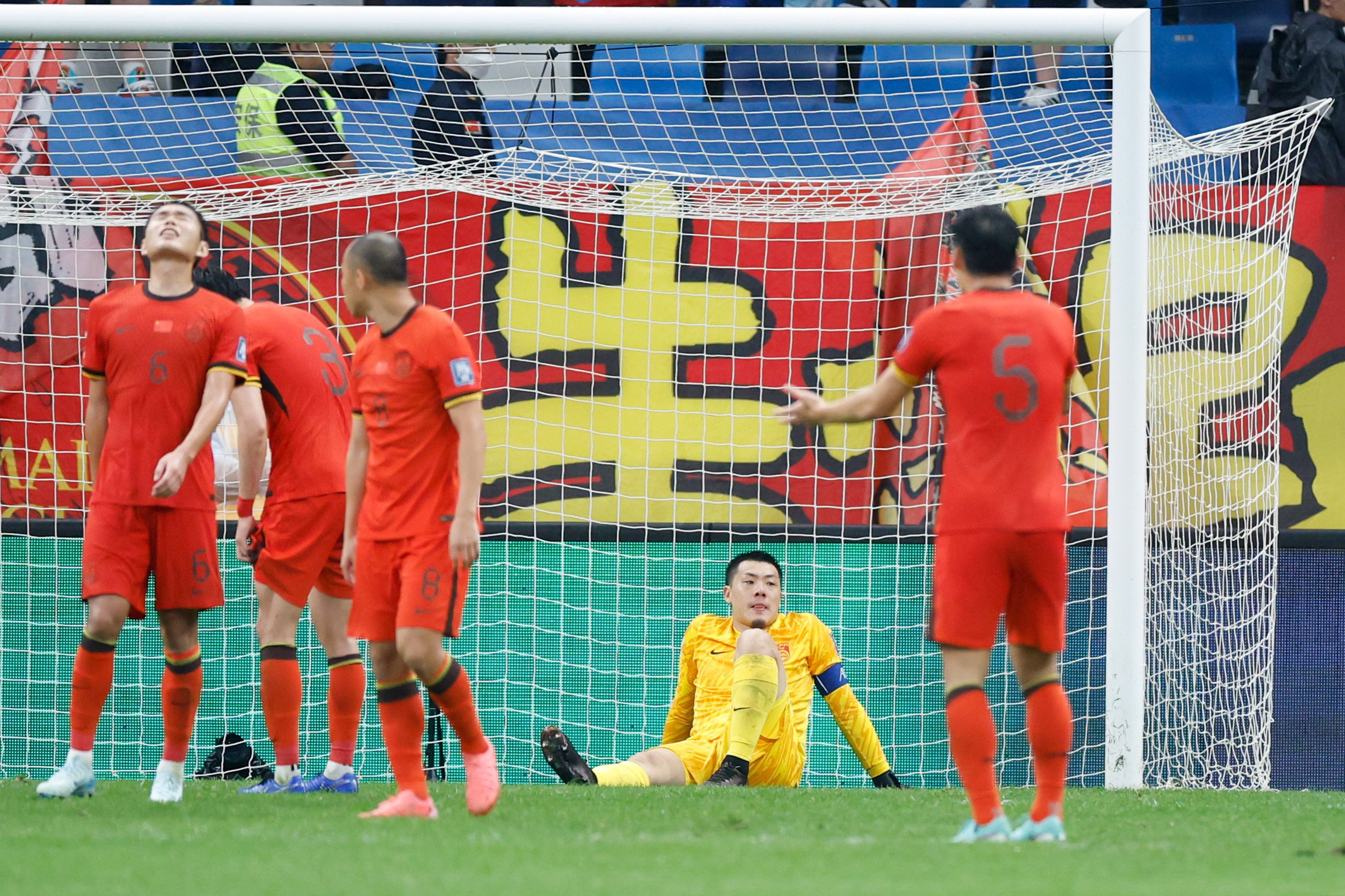With the men’s national team suffering consecutive defeats in its 2026 Fifa World Cup qualifying campaign, it seems like the only way for Chinese football is up. Losing 7-0 away to Japan was particularly hard to swallow, especially given the geopolitical tensions between the two countries, and losing 2-1 at home to 10-man Saudi Arabia only made things worse. It is clear China’s success in individual Olympic sports has not translated into better results in the world’s most popular team sports, such as football and basketball. China’s men’s basketball team has failed to qualify for the past two Olympics, leaving its national governing body facing some serious soul-searching. What can be done about this? While learning from Japan’s journey to success can help reform China’s scandal-hit football scene, it might be more sustainable to look into a US college sports model as a way to improve the fortunes of Chinese team sports. The US men’s football team is 16th in the latest Fifa ranking – higher than 18th-place Japan, Asia’s top-ranked team – despite a general lack of mainstream support and Americans’ preference for the country’s own brand of football. China is in 87th. Sports diplomacy between the US and China has historically generated wonderful results. In 1971, “ping-pong diplomacy” famously helped defuse tensions and restore diplomatic relations between the two nations. Compared to China’s highly centralised sports governance, the market-driven US model seems more capable of sustainably delivering strong team sports performances. Such a model would benefit from having a mass market and a huge economy, both of which China already possesses. The Chinese sports industry has risen to prominence in recent years, experiencing a 6.9 per cent year-on-year increase in revenue generated to 1.3 trillion yuan (US$183.2 billion) in 2022, according to government data. If the sports industry is to aid China’s transition to a consumption-led economy, such efforts can be turbocharged by a US-style college sports culture. Many of Hong Kong’s top young sporting stars have benefited from receiving scholarships from US universities to pursue higher education and a sporting career. Rising women’s basketball star Yannie Chan Yan-man is on a full scholarship at Iona University, and Olympians Vivian Kong Man-wai and Siobhan Haughey experienced top-level competition while studying at Stanford and Michigan, respectively. College sports provide a massive level of support for Team USA at the Olympics. At the Paris Games, 75 per cent of US Olympians had competed collegiately in their sport. More than 1,200 current, former or incoming athletes from US universities competed at this year’s Olympics, more than 800 of them for a country other than the US. The Chinese state has spent decades bearing the heavy financial burden of identifying and developing sporting talent from a young age. To ensure sustainable financing for sports, the government established the China Sports Lottery, a state-owned lottery enterprise created to fund the country’s sports development. Government subsidies have been instrumental in helping young athletes begin their sporting careers before they have the opportunity to compete for private-sector sponsorships and the additional financial incentives offered to Olympic medallists. The government’s top-down approach to elite sport development has delivered excellent results in individual competitions, but it becomes a double-edged sword in team sports, as it restricts athletes’ access to opportunities outside the elite programmes and hinders private-sector investment. Rather than seeing sporting success as a zero-sum game, the US should seize a golden opportunity to build goodwill and trust with China by sharing its best practices in college sports. US civil society organisations and universities have tried to reach out and invite Chinese officials to visit and share their experiences in sport development. These efforts can be expanded even further as they also represent an opportunity for US sports business to gain entry into the fast-growing Chinese sports market. Former NBA star Yao Ming himself is a passionate advocate for China to learn from US college sports culture. Chinese universities have sent numerous administrators and coaches to US colleges to study how to combine athletics and academics to position sports as an integral part of a university’s culture and develop more well-rounded student-athletes. If these efforts are successful, they can help accelerate a shift in mindset among Chinese society from having a predominant focus on academic results as the be-all and end-all to a more holistic understanding of success. Countering the prevalent zero-sum view on sports versus academic excellence can help young people in China live a happier life with a better work-life balance, counter the trend of “lying flat” and even help the country’s economy grow stronger. China has created an ecosystem of world-leading manufacturing industries through the use of similar approaches, welcoming foreign expertise, incentivising them to stay long-term and eventually achieving technological superiority from within. College sports can help China do likewise to improve in popular team sports while simultaneously sharing best practices of its sporting strength with foreign youth. Providing sports scholarships to Chinese and non-Chinese students to study in China while chasing their sporting dreams will be a highly effective yet low-cost measure to inject energy and diversity into Chinese grass-roots sporting culture. Success in the world’s most popular team sports such as football and basketball will help China inspire and impress many young people worldwide. There is no better soft power projection than a robust college sports culture to convince sport enthusiasts worldwide that China is welcoming and open to them.
Subscribe
Login
0 Comments





